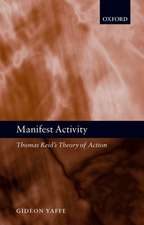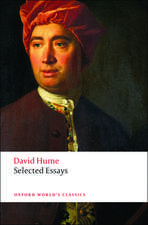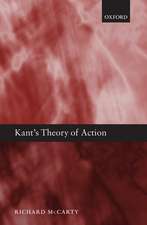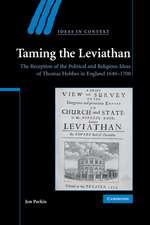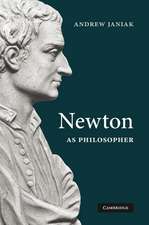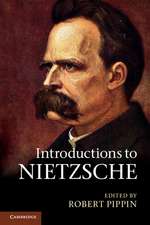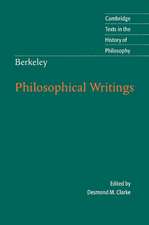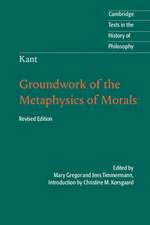The Death of Nietzsche's Zarathustra
Autor Paul S. Loeben Limba Engleză Paperback – 18 iul 2012
| Toate formatele și edițiile | Preț | Express |
|---|---|---|
| Paperback (1) | 328.68 lei 6-8 săpt. | |
| Cambridge University Press – 18 iul 2012 | 328.68 lei 6-8 săpt. | |
| Hardback (1) | 696.80 lei 6-8 săpt. | |
| Cambridge University Press – 14 apr 2010 | 696.80 lei 6-8 săpt. |
Preț: 328.68 lei
Nou
Puncte Express: 493
Preț estimativ în valută:
62.89€ • 65.84$ • 52.04£
62.89€ • 65.84$ • 52.04£
Carte tipărită la comandă
Livrare economică 07-21 aprilie
Preluare comenzi: 021 569.72.76
Specificații
ISBN-13: 9781107405530
ISBN-10: 110740553X
Pagini: 284
Ilustrații: black & white illustrations
Dimensiuni: 152 x 229 x 15 mm
Greutate: 0.38 kg
Editura: Cambridge University Press
Colecția Cambridge University Press
Locul publicării:New York, United States
ISBN-10: 110740553X
Pagini: 284
Ilustrații: black & white illustrations
Dimensiuni: 152 x 229 x 15 mm
Greutate: 0.38 kg
Editura: Cambridge University Press
Colecția Cambridge University Press
Locul publicării:New York, United States
Cuprins
Preface; Texts and citations; Introduction: the clue to the riddles; 1. The eternal recurrence of the same; 2. Demon or god?; 3. The dwarf and the gateway; 4. The great noon; 5. The laughing lions; 6. The shepherd and the serpent; 7. Circulus vitiosus deus; 8. Post-Zarathustra; Bibliography; Index.
Recenzii
'It is difficult to overstate the magnitude of the challenge this book poses to the standard and currently authoritative interpretations of Thus Spoke Zarathustra. Paul Loeb's careful exegesis and persuasive argumentation will oblige most of the leading Nietzsche scholars working today to revisit - and, in many cases, to revise - their interpretations accordingly. An impressive achievement by any measure.' Daniel Conway, Texas A&M University
'This is a provocative, novel, and erudite attempt to thread a philosophical path through the enigmatic and labyrinthine work that Nietzsche consistently considered to be his masterpiece. Paul S. Loeb establishes one of the strongest readings yet of Thus Spoke Zarathustra, arguing in a spirited, polemical, and rigorous manner that Zarathustra's story interweaves narrative and concept to develop a startling idea of post-human temporality. Readers will find here new and powerful views of Nietzsche's thoughts of eternal recurrence and the Übermensch, and suggestions of how these illuminate the program of overcoming ressentiment in his Genealogy of Morals.' Gary Shapiro, University of Richmond
'In this careful, innovative, and nuanced study, Loeb … develops an alternative to standard doctrinal and ironist readings of Nietzsche's Thus Spoke Zarathustra by revealing how its literary structure expresses the philosophical significance of the otherwise enigmatic teaching of the eternal return of the same … Highly recommended …' E. S. Nelson, Choice
'Paul Loeb's The Death of Nietzsche's Zarathustra is a superb contribution to the philosophical scholarship on Nietzsche's notoriously most inaccessible book, Thus Spoke Zarathustra … Loeb's book presents an ingeniously argued and richly insightful interpretation of Nietzsche's literary fiction that pointedly and often persuasively takes issue with each of the major TSZ commentaries to have been published within the last twenty-five years or so … an immediately indispensable and, again, excellent contribution to the literature on TSZ …' Robert Gooding-Williams, Notre Dame Philosophical Reviews
'Because the Genealogy [of Morals] is widely taken to be Nietzsche's most important work, Loeb's attempt to resolve its paradoxes by reference to the doctrines of Zarathustra is both important and timely … This book includes … a final chapter that promises to provide several thesis topics for graduate students interested in Nietzsche's moral thought.' Bryan Finken, Philosophy in Review
'Loeb's book is much bolder and potentially more compelling than the great commentaries, because its boldness rests solidly on the boldness of Nietzsche himself - this is the most literal reading of Nietzsche's masterpiece to date, literal in the sense that it dares to take Nietzsche at his word where others have ascribed metaphoricity and other rhetorical functions to him.' Adrian Del Caro, The Journal of Nietzsche Studies
'This book constitutes an 'event' in Nietzsche studies and is one of the most important books published in recent years on Nietzsche in the English-speaking world. It is both scholarly and immensely challenging.' Keith Ansell Pearson, University of Warwick
'This is a provocative, novel, and erudite attempt to thread a philosophical path through the enigmatic and labyrinthine work that Nietzsche consistently considered to be his masterpiece. Paul S. Loeb establishes one of the strongest readings yet of Thus Spoke Zarathustra, arguing in a spirited, polemical, and rigorous manner that Zarathustra's story interweaves narrative and concept to develop a startling idea of post-human temporality. Readers will find here new and powerful views of Nietzsche's thoughts of eternal recurrence and the Übermensch, and suggestions of how these illuminate the program of overcoming ressentiment in his Genealogy of Morals.' Gary Shapiro, University of Richmond
'In this careful, innovative, and nuanced study, Loeb … develops an alternative to standard doctrinal and ironist readings of Nietzsche's Thus Spoke Zarathustra by revealing how its literary structure expresses the philosophical significance of the otherwise enigmatic teaching of the eternal return of the same … Highly recommended …' E. S. Nelson, Choice
'Paul Loeb's The Death of Nietzsche's Zarathustra is a superb contribution to the philosophical scholarship on Nietzsche's notoriously most inaccessible book, Thus Spoke Zarathustra … Loeb's book presents an ingeniously argued and richly insightful interpretation of Nietzsche's literary fiction that pointedly and often persuasively takes issue with each of the major TSZ commentaries to have been published within the last twenty-five years or so … an immediately indispensable and, again, excellent contribution to the literature on TSZ …' Robert Gooding-Williams, Notre Dame Philosophical Reviews
'Because the Genealogy [of Morals] is widely taken to be Nietzsche's most important work, Loeb's attempt to resolve its paradoxes by reference to the doctrines of Zarathustra is both important and timely … This book includes … a final chapter that promises to provide several thesis topics for graduate students interested in Nietzsche's moral thought.' Bryan Finken, Philosophy in Review
'Loeb's book is much bolder and potentially more compelling than the great commentaries, because its boldness rests solidly on the boldness of Nietzsche himself - this is the most literal reading of Nietzsche's masterpiece to date, literal in the sense that it dares to take Nietzsche at his word where others have ascribed metaphoricity and other rhetorical functions to him.' Adrian Del Caro, The Journal of Nietzsche Studies
'This book constitutes an 'event' in Nietzsche studies and is one of the most important books published in recent years on Nietzsche in the English-speaking world. It is both scholarly and immensely challenging.' Keith Ansell Pearson, University of Warwick
Descriere
This book presents an entirely new approach to Nietzsche's Thus Spoke Zarathustra, which reinterprets the relation between the book's literary and philosophical aspects.


